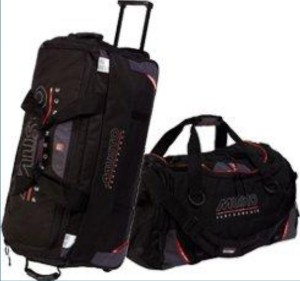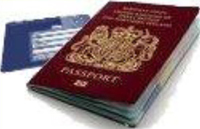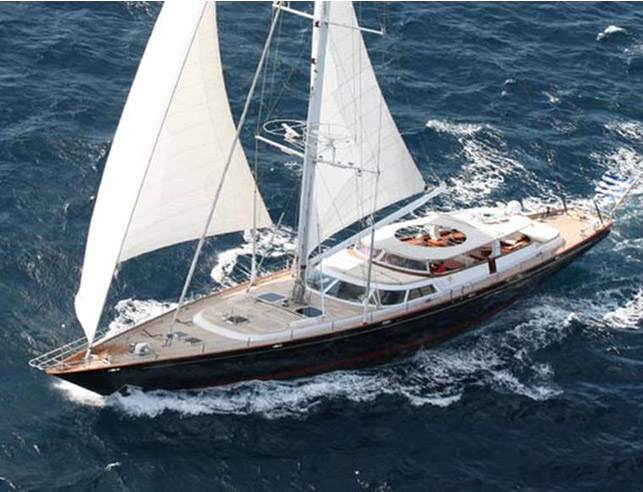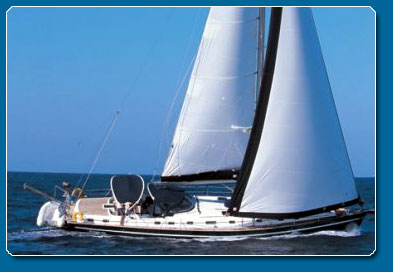- Choose calm, uncrowded waters If you’re just starting to master sailing basics and learn how to sail, then one of the most importantbeginner sailing tips to remember is to practice in ideal conditions of light winds and low traffic.
- Choose a small boat to learn how to sail It’s easier to learn how tosail with fewer lines and sails. A small dinghy will be more responsive and easier to maneuver, and is also perfect for practicing test capsizes.
- Follow sailing basics for safety There are certain sailing basics for safe boating that should go without saying, no matter what your level of expertise. These include always telling someone beforeyou go out on the water, always bringing a floatation device and knowing in advance how to swim.
- Research tide, wind and weather conditions. Check the weather forecast so you can be prepared for whatever the weather might bring. Be sure to bring along adequate provisions, clothing and basic weather gear as needed. Boating and sailing basics means always being prepared.
- Become familiar with sail control The best sailors are the ones who are able to adjust sail settings to take the best advantage of different wind and water conditions. In general, sails should be relatively flat when the wind is either very light or very strong, and full when there is a moderate wind.
- Capsize on purpose. This may seem like one of the oddest sailing tips we could suggest, but it’s better to practice how to handle a capsized sailboat within a controlled environment, as opposed to an uncontrolled one. We learn best from experience, and the valuable sailing basics you’ll pick up from going through a test-capsize in a small dinghy will serve you well in the event of a real-life one.
- Respect the boom Some of the most common sailing injuries are a result of not being aware when the boom is about to swing. To avoid a bump to the head, or even worse, being knocked overboard, one of the most important sailing tips to always remember for both passengers and crew is to be conscious and respectful of the boom at all times.
- Learn basic sailing terms. Before you venture out on your first trip, be sure to acquaint yourself with basic sailing terms. Make sure you know the difference between port, starboard, and other important concepts.
- Practice makes perfect. Don’t try to teach yourself all the sailing basics. Invest in a good sailing course, research guides and books, and learn from friends with experience.
If your holiday falls between mid-May and the end of September, you won’t need much in the way of clothes! A couple of swimsuits, towels, some T-shirts and shorts and something casual for the evenings are all you need. It’s a good idea to include a windproof jacket in case of stronger winds. It is also good to have sailing gloves to protect your hands and office calluses.
Closed non-slip shoes (deck shoes/sports shoes) are a must for safety on board and don’t forget to bring a sun hat, sunglasses and include plenty of sunscreen for protection from the sun. Reflection from the water means you soak up a lot of sun while sailing.

It is preferable to pack in soft bags rather than hard suitcases as hard cases are more difficult to stow away in lockers onboard. It’s a good idea to chose soft bags with wheels or have a collapsible trolley for ease of transport. What we guarantee you won’t need is a stepladder!
For early and late season sailing; before mid-May and after September, a fleece/sweater and some warm trousers may be necessary and it’s wise to include wet weather gear too – just in case!
Toiletries and medication
Most brands of soap, shower gel, shampoo, sunscreen etc. are sold in Greece although they tend to be more expensive from the small harbour-side shops. If you take prescribed medicine, it is advisable to bring enough with you for the duration of your holiday. Although all our yachts have a basic first aid kit, it is a good idea to carry one of
your own which should includes travel sickness pills, antiseptic cream, insect repellent, antihistamine cream/gel for insect bites and anything else you personally may need.
Food
Although you will probably find everything you need in the supermarkets in Greece, if you have food allergies (milk, wheat gluten, etc.) it is advisable to bring the substitutes you use at home as they may not be readily available in the small shops you will be using in Greece.
Documents & currency

You will of course need your passport or ID card (EU member countries). If you are from a non-EU country you should check with your Greek consulate as to whether you need to apply for a visa. You should also bring your sailing certificates as they are sometimes requested by the Port Police. If you intend to hire a car, motorbike or
other vehicle whilst on holiday you should also bring your driving licence. Your personal holiday insurance documents and if you are from a European Union member country, the EU medical card should be included in your hand luggage.

We recommend that you bring a combination of cash and traveller’s cheques together with your credit cards. Most of the time it is better to buy your Euros in Greece. You can use bank ATM cash machines in most places to obtain Euros so long as your bank card operates while abroad; not all do.
You can use credit cards in shops and restaurants Poros and the larger ports you may visit.
Remember that the smaller and more remote ports may have no banks; no ATMs and that in small tavernas credit cards may not be accepted. It’s therefore a good idea to carry enough cash to buy daily supplies and pay for dinner, especially if you are bareboat chartering and going further afield.
Useful Extras
You will need a continental 2 pin plug adapter for use on shore (charging cameras, phones, etc. in tavernas & cafes). As all our yachts have 12v sockets it would convenient to bring the appropriate 12v charger (car plug) for your laptop, mobile phone, digital camera, etc.
Packing checklist
To make things easy, here’s a checklist!
- Swimsuits
- Towels;
- beach towels for sunbathing
- tea towels
- towels for showering. Microfibre towels are excellent
- T-shirts
- Shorts
- Casual evening wear
- Windproof jacket
- Sailing gloves
- Deck shoes
- Sun hat
- Sunglasses with lanyard
- Sunscreen/sun cream
- Lip salve/screen
- Toiletries (all-in-one shampoo/shower gels can be handy)
- Food favourites/substitutes
- Prescription medicines
- First aid kit
- Travel wash if you want to rinse things out in the evening
- Music CDs if you want to take advantage of the boats’ CD player
- Passport/ID card/visa
- Your sailing log &certificates
- Driving licence
- Holiday insurance
- EU medical card
- Cash/traveller’s cheques/Euros/credit cards
- Camera with batteries and 12v (car plug) charger
- 2 pin continental plug adapt
- 12v car-type charger for mobile phones, cameras etc.
- Fleece/sweater
- Warm trousers
- Wet weather gear
What is included & you don’t need to bring
- All bed linen
- Blankets…although you are unlikely to need them!
- Navigation instruments (dividers etc.)
- Pilot books or charts
- Stiletto heels or your bowler hat




